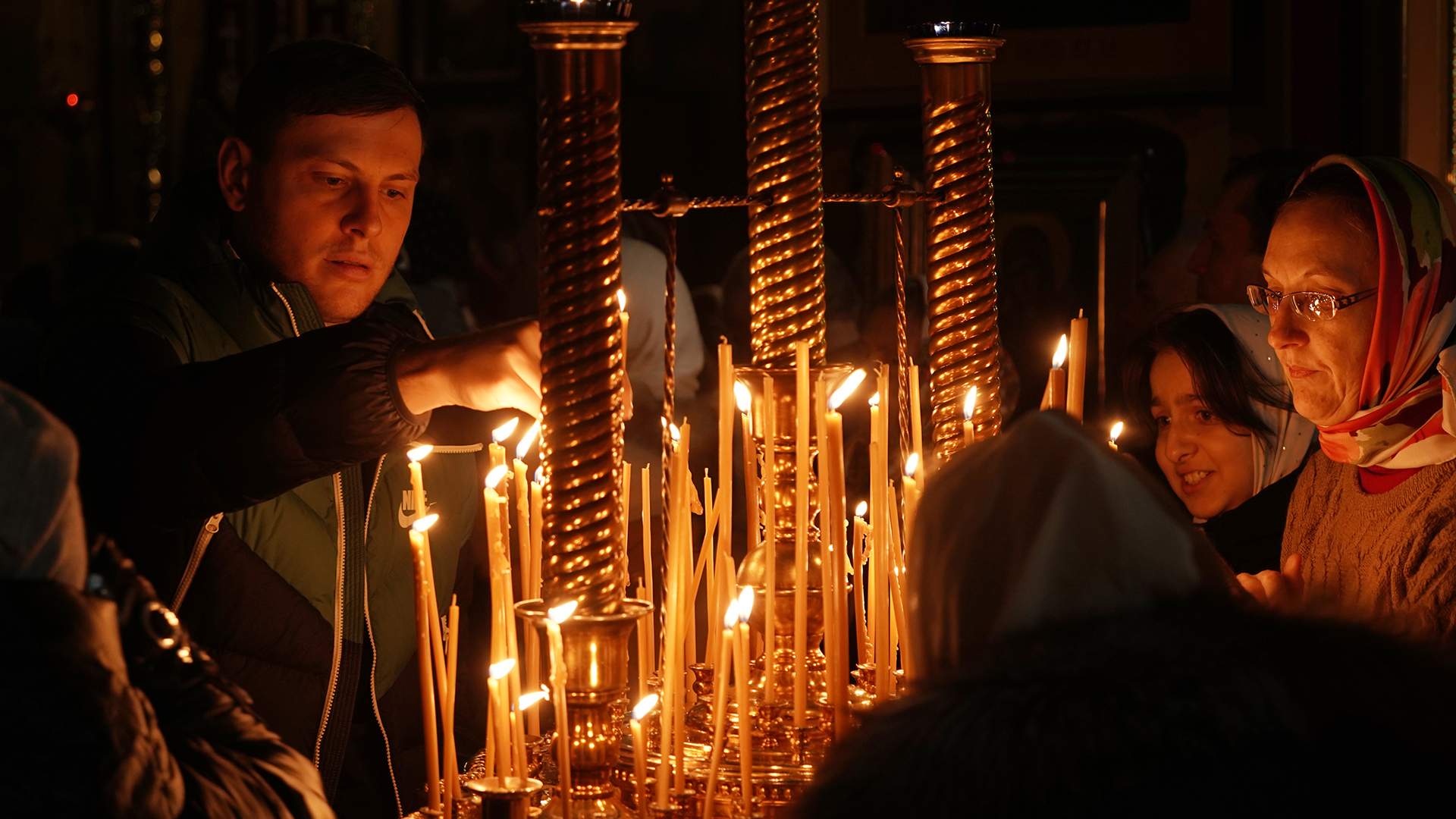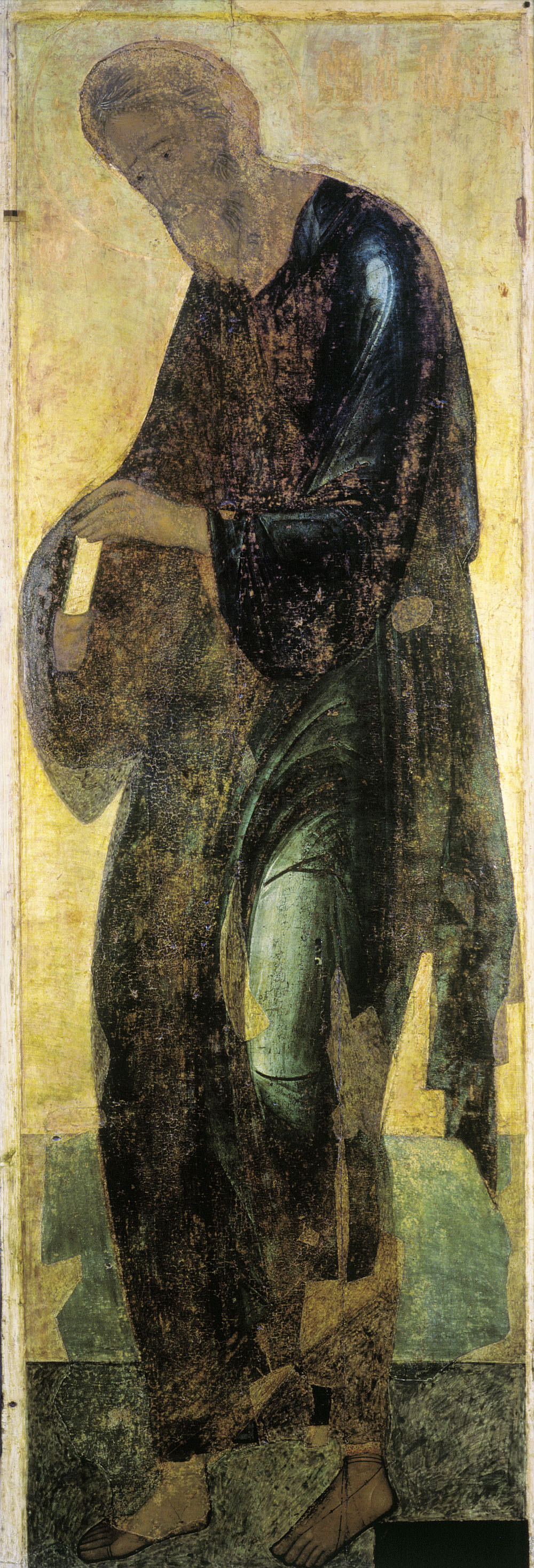St. Andrew's Day: what is strictly forbidden, folk omens

On December 13, Orthodox believers commemorate the Apostle Andrew the First-Called, the first disciple of Jesus Christ. He is considered the heavenly patron saint of Russia and sailors. The people call the holiday Andrew's Day and connect with him not only maritime traditions, but also terrible omens and prohibitions. Details - in the material "Izvestia".
Andrew's Day: what is the folk holiday on December 13
Andrew the First-Called - one of the 12 apostles of Jesus Christ, canonized in Orthodoxy and is considered the patron saint of Russia. His name is of Greek origin and means "courageous". In the ROC this saint is especially important, because his missionary activity is closely connected with the history of Christianity in ancient Russia.

Andrew Pervozvanny was a native of the city of Bethsaida, located on the shore of Lake Genisaret, or the Sea of Galilee. The native city of the future apostle was small, the most part of the population was Jews. Like his brother Peter (Simeon), Andrew was a fisherman. The brothers grew up in an atmosphere of strict observance of Christian traditions and expectation of the coming of the Messiah.
Before meeting Jesus, Andrew was a disciple of John the Baptist and led an ascetic lifestyle, preaching repentance. The First-Called was a deeply religious man who sincerely sought to live according to the Law of God.
It was the Forerunner who pointed Andrew to Jesus as the Messiah. After this, Andrew became the first to follow Christ, for which he received the nickname of the First-Called. Before meeting Christ, Andrew lived a simple but pious life.
After Pentecost (descent of the Holy Spirit), on the 50th day after Easter, the apostles set out to preach the Gospel throughout the world. According to tradition, the Apostle Andrew preached in the land where Ancient Russia arose many years later. He also carried the word of the Lord in Asia Minor and the Balkans.
Apostle Andrew has been executed for preaching Christianity in the Greek city of Patras. The local ruler Egeat ordered him to be crucified on a cross because Andrew had converted his subjects to Christianity. However, the saint was not afraid of such a terrible fate, only asked that his cross be set differently, as he believed that he was not worthy to die like Jesus. In addition, the apostle's hands and feet were not nailed to the cross, but tied.
He was crucified in about 67 on an oblique cross, which later became known as St. Andrew's Cross. Even on the threshold of death Andrew continued to preach the Christian faith, and the townspeople asked to pardon the apostle. Egeat agreed, but Andrew turned to God and asked him for martyrdom: no one present could untie the ropes. Later, the Cathedral of St. Andrew was erected on this site - it is the largest in Greece.
Iconographically, St. Andrew is depicted in red and green robes, with a beard. Usually he holds a cross - a symbol of martyrdom, in the other hand is depicted a scroll or a book.
The Orthodox honor the memory of St. Andrew twice: on the day of his death on November 30 (December 13) and on the feast of the Sobor of the Glorious and All-Merciful 12 Apostles on June 30 (July 13). Catholics celebrate only on November 30.
St. Andrew's Day reminds Christians of the importance of faith and missionary work, of perseverance in trials. The Apostle Andrew is an example of devotion to God and readiness to follow him, despite the difficulties.
Veneration of St. Andrew in Russia and traditions of celebrating St. Andrew's Day
St. Andrew is considered the founder of the Christian tradition and the patron saint of the Russian state. In 1699, Emperor Peter I established in honor of the Apostle Andrew the first and highest order, which was given as a reward to dignitaries of the state. Since 1998, the Order of St. Andrew the Apostle has been the highest award of the Russian Federation.
X-shaped cross, on which the apostle was executed, became a symbol of the Navy of the Russian Empire, it was depicted on the flags from the Peter the Great times. This disciple of Christ was chosen as the patron saint of sailors for a reason. According to legend, the apostle brought back to life 40 people who died during a storm.
On December 13 in churches are celebrated liturgies, prayers to the Apostle Andrew, read the Gospel texts related to the events of his life. On this day parishioners often pray before icons of St. Andrew, asking for help, guidance and spiritual support.
The traditions of celebrating St. Andrew's Day have developed over centuries and include both religious customs and folk rituals, especially popular in pre-revolutionary Russia. In some regions of Russia and Eastern Europe, St. Andrew's Day was associated with folk customs and festivities, especially in earlier times.
St. Andrew's Day was considered a "maiden's holiday." Young girls conducted various rituals to find out their fate and soulmate. For example, in a dark room they lit candles in front of a mirror to see the image of the future groom. They lowered a ring on a string or a twig into the water, making a wish. If the object remained calm, then everything would be fine, if it began to rock or immediately went under water - it was considered a bad omen. Before going to bed, girls put a twig or bread under the pillow, making a wish that the bridegroom would come in a dream.
In Russia, fortune-telling and rituals on St. Andrew's Day were popular in rural areas. This time was considered magical, when a person could turn to the forces of nature for answers.
In Belarus, girls on St. Andrew's Day went out in the evening and listened to sounds. If they heard dogs barking, it was believed that the groom would come from the side where the sound came from. Thus, St. Andrew's Day combined the spiritual veneration of the apostle with a rich folk tradition connected with fortune-telling and predictions. In the folk tradition there was a belief that girls who refuse fortune-telling or jokingly mock these customs can bring bad luck in their personal life.
For young men on St. Andrew's Day was held a rite of passage, after which they could take adult work, match and marry. For this purpose it was necessary, standing on a poker, to take a bite from the suspended bread, which was baked in advance by girls. The ritual treat was guarded by older guys, so it was not so easy to get to it. The rite was always accompanied by noisy fun and girls' squealing.
Now the believers attend services on St. Andrew's Day. In addition, sailors and servicemen should take communion and turn to the saint for protection. Unmarried girls on this day ask for marital happiness. Often after visiting the temple, people gather for a feast in the circle of the nearest and dearest people. However, it should be remembered that the celebration falls on the Christmas fast, so there should not be alcohol on the table, as well as products of animal origin.
What you can not do on St. Andrew's Day
In St. Andrew's day, as in other church holidays, there are certain restrictions related to both religious norms and folk traditions. Here is a detailed description of what you can not do on the holiday.
The Church does not recommend doing heavy labor, cleaning, washing and repairing. This time is better to devote to prayer, visiting the temple or thinking about spiritual things. It is important to remember the meaning of the feast: the Apostle Andrew's steadfastness in faith even in the face of death.
Not recommended and popular in the world fortune-telling on the soulmate.
As explained by Archpriest, candidate of theology, rector of the Church of All Saints in Simferopol Vladimir Kashlyuk, any desire "in advance" to know their fate borders on complete distrust of God, because instead of diligent prayer for a successful marriage and a good spouse preferred magical, or rather demonic, act.
"And few people think that any intervention of unclean forces, much less done "by human desire", will inevitably entail very destructive life consequences, when Satan himself will rule his fate, and a person will no longer be able to resist this demonic influence because of his conscious choice," - convinced archpriest.
Since St. Andrew's Day falls during the Christmas fast (November 28 - January 6), no noisy feasts and merry festivities with copious treats and alcohol are forbidden. Lent implies moderation in food and entertainment, so traditions of merry parties with fortune-telling are often connected not with the church, but with folk customs. On the day of the Apostle Andrew it is necessary to strictly adhere to the fasting menu, exclude meat, dairy products and eggs. On St. Andrew's Day, fish, bread, vegetables and other fasting dishes are allowed.
It is believed that quarrels, scandals and rudeness on this day can attract negativity in life. The day should be spent in tranquility and harmony. According to folk beliefs, sewing, knitting or any other needlework on St. Andrew's Day could "sew" good luck and bring misfortune to the house.
It is forbidden to engage in construction, carpentry and joinery, as it is considered a bad omen that will bring bad luck. A special prohibition lies on work related to the land: digging, plowing or other agricultural labor. It was believed that this could lead to a bad harvest next year.
On St. Andrew's Day one should not neglect guests. If on this day someone came to the house, you can not refuse him a treat, otherwise the year will pass in poverty. Disputes and disagreements with neighbors could, according to beliefs, lead to long conflicts. On St. Andrew's Day one should treat food with care, otherwise it will attract poverty and lack in the house.
On St. Andrew's Day it is important to strike a balance between religious precepts and respect for folk traditions, avoiding fuss, conflicts and hard work.
St. Andrew's Day: folk weather omens
The Orthodox Church does not share the conviction of Christians in omens, urging not to believe prejudices of this kind. However, people's beliefs were formed over the years and were based on life experience.
For example, girls used to make dough or bake bread, guessing by its shape and cracks how successful the next year would be. If St. Andrew's Day was warm and sunny, it promised a mild winter. Increased snow cover on this day portended a rich harvest in the coming year.
Red wood burning in the stove boded for cold weather, while white flames, on the contrary, said that cold weather would not last long. Sunny weather and frost on St. Andrew's Day boded well for a good harvest next year. If a smiling cat was seen on December 13, the coming days would be frosty but without precipitation.
Переведено сервисом «Яндекс Переводчик»









